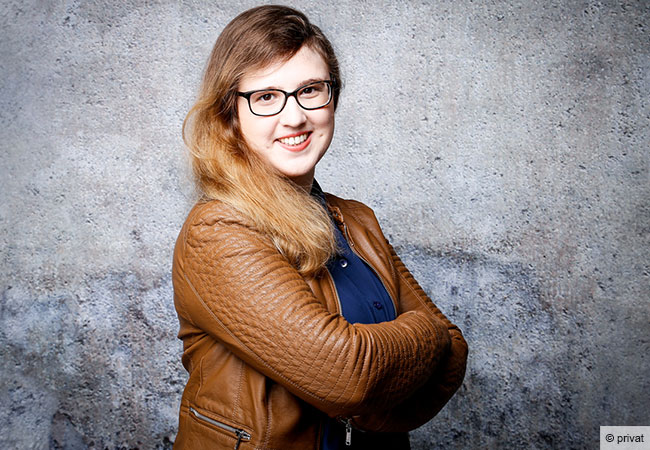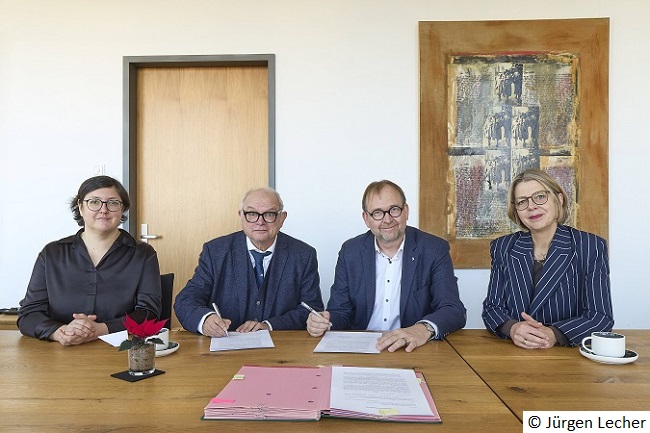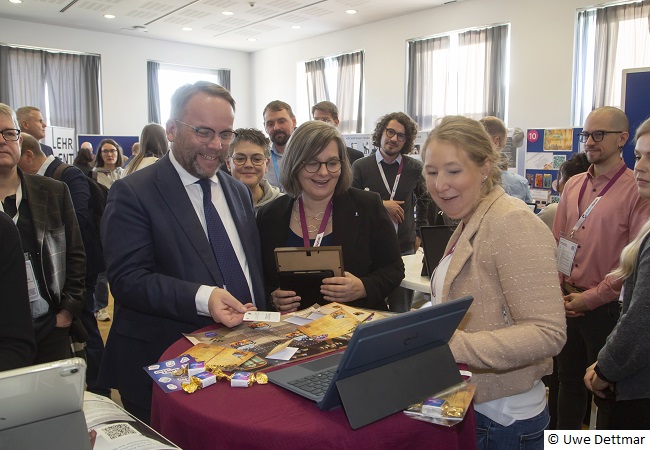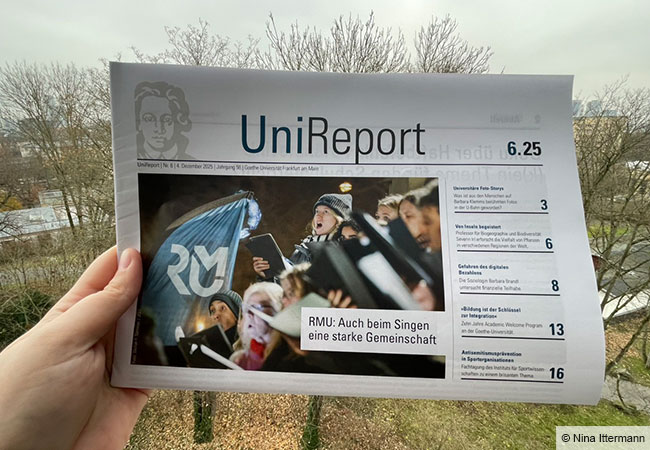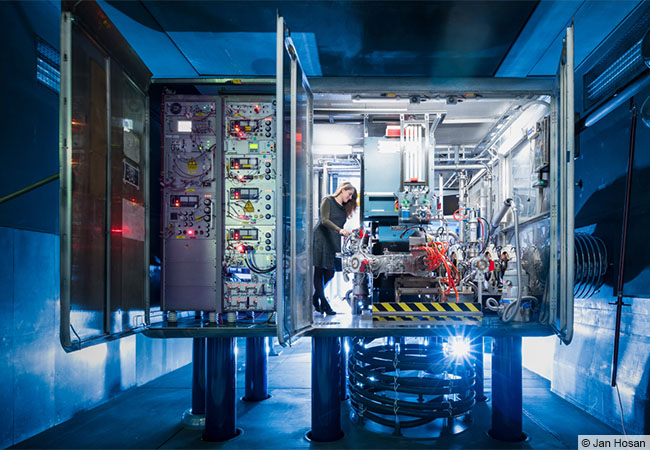The collaboration with the Université Paris Dauphine-PSL is one of the oldest and most intensive cooperations of Goethe University’s Faculty of Economics and Business. Its distinguishing feature: two double-degree programs allowing participants to study for a degree of both countries. To mark the partnership’s 30th anniversary, a large delegation visited Goethe University on Friday, December 9.

The two partner universities’ contribution to the Franco-German friendship has at least 344 faces: that’s how many students participated in the double-degree programs of the economics departments at Goethe University and Université Paris Dauphine-PSL over the past 30 years. Not included in this tally are the numerous students who have moved between the partner universities via Erasmus semesters abroad. What started in 1992 as a „trial balloon“ for a double degree, says Lars Pilz, Deputy Dean for Study Matters at Goethe University’s Faculty of Economics and Business, over the years has taken the form of a joint double bachelor’s degree and, more recently, a double master’s degree – making the partnership with Université Dauphine-PSL unique. In total, Goethe University’s Economics and Business Faculty more than 140 international partnerships.
Nothing better represents this intensive and close cooperation with Dauphine-PSL than the visit from the Paris delegation to mark the anniversary: PSL University President Prof. El-Mouhoub Mouhoud and Vice-President Prof. Sophie Meritet were joined not only by all those responsible for the program. The cohort also included those students who will be starting the double bachelor’s program next year. Additional goals of the cooperation were addressed in the exchange with Goethe University President Prof. Enrico Schleiff and those responsible for the partnership here.
„I am pleased about the great appreciation our economists enjoy among our partners. The commitment with which all those responsible have nurtured and developed this international partnership over the past 30 years is not something to be taken for granted. I would like to explicitly thank everyone involved for these efforts,“ said Prof. Enrico Schleiff. „In times like these, with accumulating crises, it is more important than ever to have more projects like this – which not only provide young people with intercultural knowledge and prepare them for entering an international job market. They also create an awareness for a Europe whose future viability can only be developed on the basis of knowledge and trust.“
„Our students are taking part in the historical, political and economic continuity of the Franco-German cooperation”, said Prof. El-Mouhoub Mouhoud. “They interpret a more modern and non-exclusive version of it, adapted to globalization and more generally open to Europe and the world. This is thanks to trilingual teaching and courses that increasingly include the major contemporary issues and the multipolar dimension of the contemporary world. The Franco-German cooperation remains alive thanks to concrete projects at the individual, academic and business levels. The cooperation between Dauphine and Frankfurt is all the more important for this reason.“
To deepen the partnership, the two universities plan to intensify their cooperation in the field of artificial intelligence and with the Frankfurt House of Finance, whose scientific director and head of the double programs, Prof. Rainer Klump, accompanied the visit. With a branch in Tunisia, in the long term, the Université Paris Dauphine also opens up the possibility for Goethe University’s German partners to extend the study programs to the African continent, too.
The double bachelor’s program was included in the Franco-German University (Deutsch-Französische Hochschule, Université franco-allemande), an association of 208 universities, in 2019. With the seal of this association, students who spend two semesters in two countries and one joint semester in Frankfurt can receive an additional 300 euros for their stay abroad, in addition to their Erasmus funding. Starting this winter semester, students in the double master’s program in economics and finance, first introduced in 2019, will receive scholarships from the BHF Bank Stiftung and the Willy Robert Pitzer Foundation Bad Nauheim, which also supports language programs. In addition, the two degree programs also include the possibility to complete professional internships in both countries, and to receive targeted language training in French, German and English.
The regular feedback from students and the „creativity“ of everyone involved have been crucial to overcoming one or two administrative hurdles and developing a common understanding of the degree programs, Lars Pilz and his colleague Bianka Jäckel agree. The students describe their studies as quite demanding: „I have to admit that due to the workload and the organization, studying at Dauphine was anything but a walk in the park,“ one student says about his experience in Paris. „Nevertheless, it … opened the doors to a cool internship abroad for me.“ At the same time, students point to the „wonderful challenge of developing both personally and academically,“ as double bachelor student Victor Schäfer from Goethe University writes. By contrast, students from Paris, such as Anita Poulou, who just completed her double master’s degree, offer lots of praise for Frankfurt as a location: „Frankfurt is a wonderful city as it offers a wide range of professional opportunities that students can easily combine with their studies.“ The good reputation of the master’s program among employers in the financial services sector also opened doors for her professional development, she adds.


